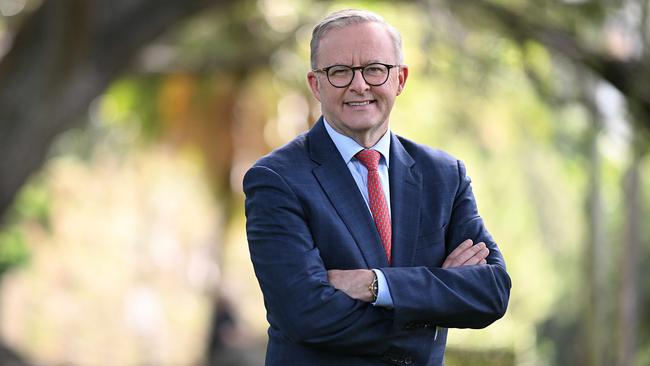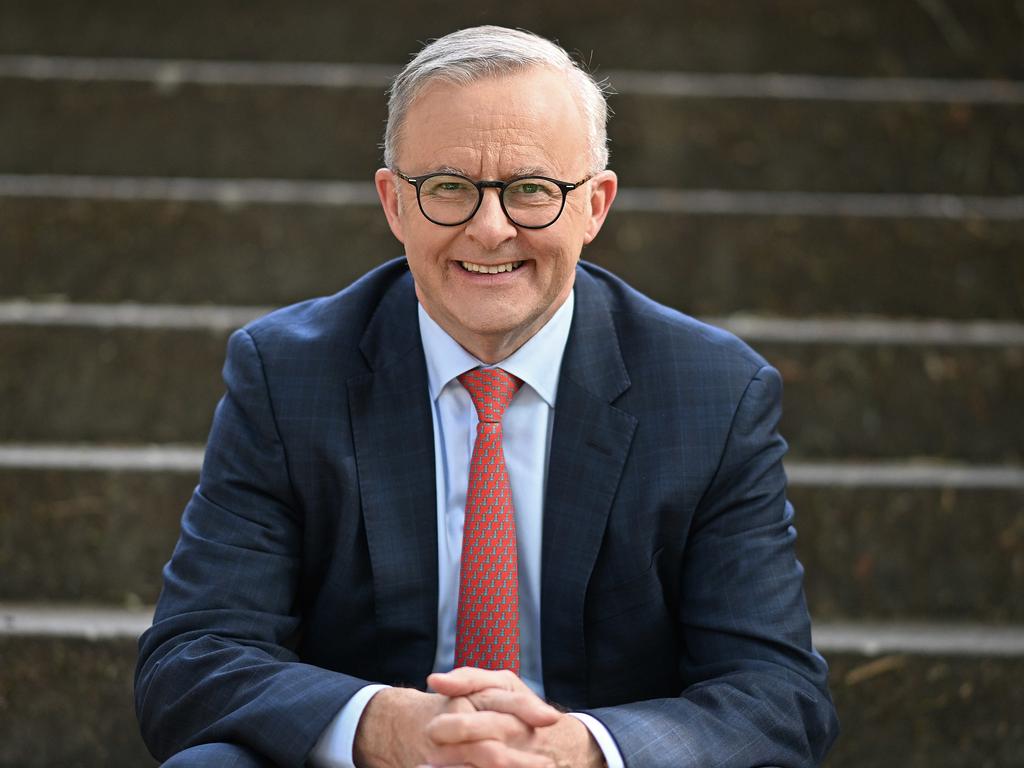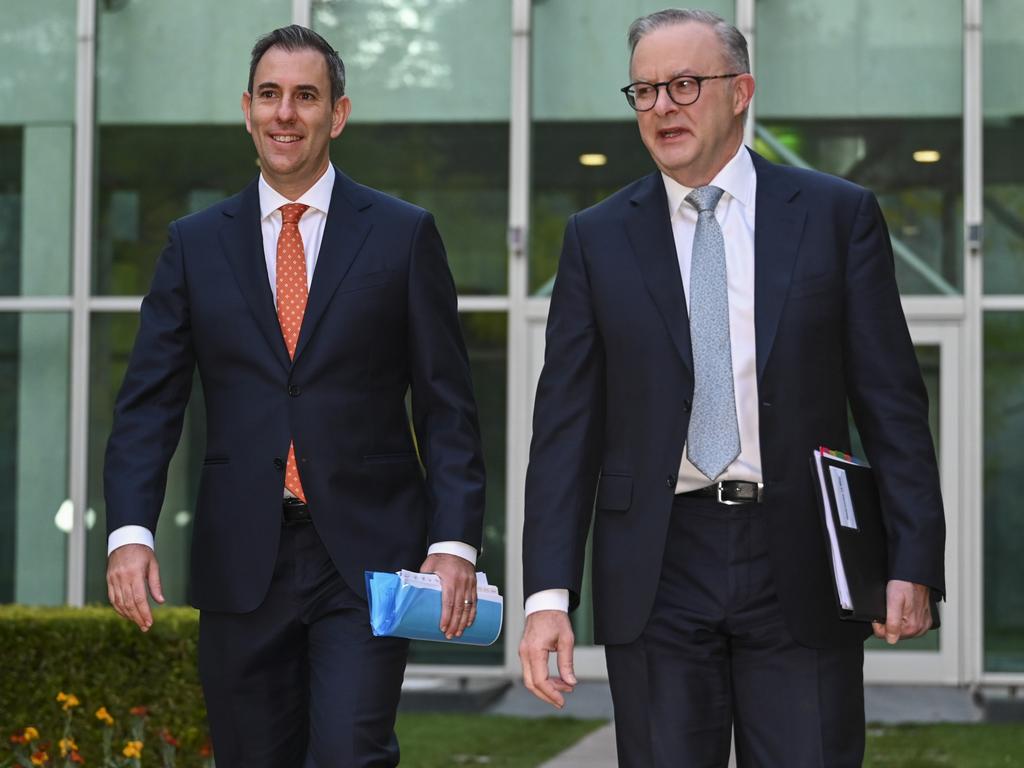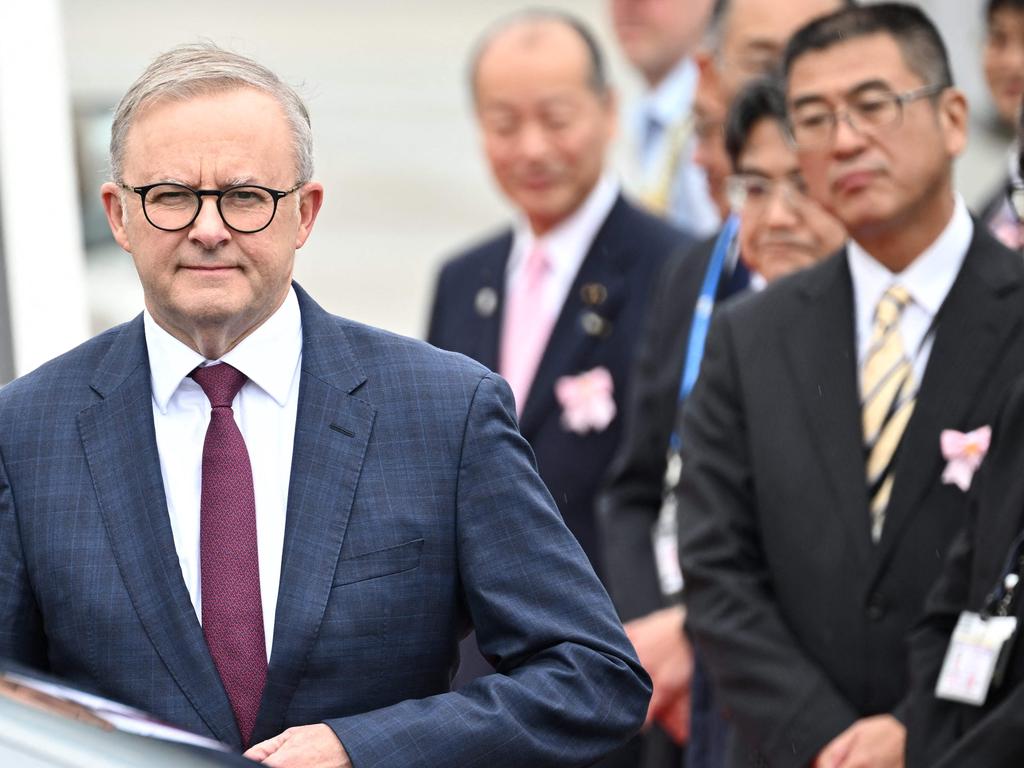Prime Minister Anthony Albanese — one year in — is determined to help Labor ‘occupy the political landscape’ for at least 10 years
Prime Minister Anthony Albanese marks his first year in the Lodge by declaring he wants Labor to ‘occupy the cultural and political landscape’ for at least a decade to shield the ALP’s long-term reform agenda by winning successive elections.

Anthony Albanese wants Labor to “occupy the cultural and political landscape for at least a decade” to avoid the Coalition reversing ALP policies and dismantling the government’s long-term reformist agenda.
The Prime Minister – who on Sunday marks his one-year anniversary – is focused on staying in the top job for at least two terms and helping Labor match the staying power of Bob Hawke and Paul Keating.
With opinion polls favouring his low-risk approach to governing, Mr Albanese is determined to banish the memories of Malcolm Fraser and Tony Abbott, who up-ended Labor’s social, economic and environmental agendas following the short-lived terms of Gough Whitlam, Kevin Rudd and Julia Gillard.
Mr Albanese is marking his first year in office in Hiroshima, Japan, where he is meeting with the G7, the Quad, and other global leaders, including US President Joe Biden and Indian Prime Minister Narendra Modi.
As he called the summit an important “gathering of democracies” with “common values”, Mr Albanese dismissed Chinese claims the Hiroshima meeting was “pseudo-multilateralism”.
Mr Albanese is also expected to again meet Ukrainian President Volodymyr Zelensky in Japan.
Ahead of flying, Mr Albanese said a “sense of purpose” and his enforcement of a traditional cabinet structure had underpinned the government’s first year in power after almost 10 years of Coalition rule.
“The government has a sense of purpose. We have dealt with immediate challenges while building a better future, long term. We are operating a proper cabinet government, which takes advantage of the talent and capacity across our team,” he said.

Long-time associates and friends of Mr Albanese said the 60-year-old and those in his inner-sanctum were planning for the future to ensure Labor occupies “the cultural and political landscape” over successive terms.
“There’s some criticism about being risk averse and not doing enough. But towards the end of the term, they’ll start arguing more clearly about putting a Labor stamp on government,” a long-term associate of Mr Albanese said.
“As time goes on, you’ll see more of a reformist Labor agenda if they win subsequent terms. They are determined to ensure their policies can’t be reversed.”
The voice referendum and changes to super tax concessions are two early examples of a future-proofing principle written into parts of Labor’s legislative agenda. With Mr Albanese’s personal approval ratings higher than those of his party, insiders say he has the potential to stay in charge for at least two terms.
However, challenging times lie ahead amid a looming global recession and economic slowdown, rising concerns from big business about the government’s industrial relations and tax agendas, tensions between China and the US, and shaky support for the Prime Minister’s referendum to enshrine an Indigenous voice to parliament.
A former Labor minister, who strongly endorsed Mr Albanese’s performances on the international stage, said the Prime Minister had “benefited enormously from low expectations”.
“That’s not a criticism, that’s just the way the world works. He is clearly governing from the centre and has instilled discipline within the ranks and he’s benefited from that. Whether that lasts … that’s another matter,” the former minister said.
Former Labor minister Joel Fitzgibbon – who entered parliament with Mr Albanese in 1996 – said the Prime Minister had “surprised all those who didn’t know him well and therefore underestimated him”.
“He’s governed from the centre where the majority of Australians sit. He’s been calm, confident and reassuring,” Mr Fitzgibbon said.
Veteran Labor strategist Bruce Hawker lauded Mr Albanese’s first year and warned the Coalition faces decades in the political wilderness. “I think his first 12 months have been extremely successful, in part because they are a mature government who learnt the internal lessons of the past and are determined not to repeat the mistakes,” he said.
“It certainly helps when you have an opposition not doing any favours to itself or the people who once supported it. I believe the split in the Liberals is akin to the split in the Labor Party and the DLP in the 50s, when suddenly half your base walks aways from you. Unless you come to terms with it, it is fatal.”
Mr Hawker said a “sleeper issue” was national security: “The real impact of the changes we see in America and China will start to be felt in a very significant way in the Australian public over the next 12 months – in terms of increased anxiety and concern in Australia about where this is going and where does Australia stand in it all. We haven’t been faced with a national security threat of this scale in 80 years.”

Writing in The Tocsin magazine, published by the John Curtin Research Centre on Sunday, Australian National University history professor Frank Bongiorno says Mr Albanese’s emphasis on “order, regularity and trust (is) a rebuke to the Morrison government but also, arguably, to the Rudd and Gillard era”.
“We do not yet know if Albanese will be a short or long-term leader – the last in the procession of two to four-year prime ministers we have had since Howard, or a more enduring proposition,” he writes.
“His age works against Howard-like longevity, but he could emulate Hawke’s eight years. His ambition is clearly for at least a couple of terms, and the problems of the Liberal Party following the 2022 election and a succession of humiliating failures in state elections augur well for federal Labor’s, and Albanese’s, prospects. Coming to the prime ministership at 59, as did Ben Chifley, on assuming office Albanese was a little older than Harold Holt and a little younger than Malcolm Turnbull.”

Professor Bongiorno said while governments often falter early on, “Albanese’s has been a remarkably clean first year, unworried by any kind of scandal or major error”.
Acknowledging the government was benefiting from “the crisis in the Liberal Party”, Professor Bongiorno said Labor boasts “advantages that it has not enjoyed since the Hawke era”.
“The prospects of an extended period in government are fair. The main dangers lie in the economy, which may well fall into a recession, in ministers becoming atomised and isolated in their portfolio work, and in old-fashioned political miscalculation. For the time being, voters are disinclined to blame Albanese’s government for the cost of living, but that time may eventually come.”






